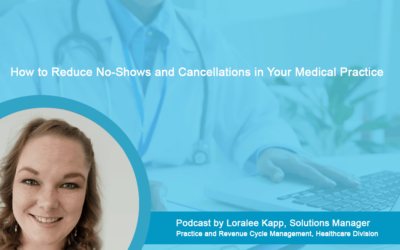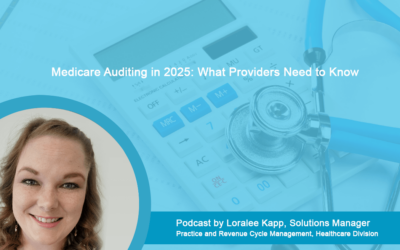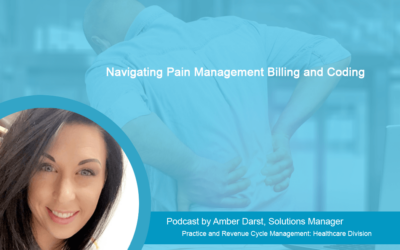An experienced dental billing company in the U.S., Outsource Strategies International (OSI) assists small as well as large practices with their billing, claim submission and coding requirements. We help dental practices streamline their revenue cycle management, and receive timely and optimal reimbursement.
In today’s podcast, Amber Darst, our Solutions Manager, discusses dental and medical cross coding.
Read Transcript
Hi, this is Amber Darst, Solutions Manager for Managed Outsource Solutions.
For this podcast, I’ll be discussing dental and medical cross coding.
For certain procedures, dental offices are required to bill a patient’s medical plan for dental procedures that are typically considered “medical” in nature. The submission of dental treatments to medical payers – referred to as dental medical cross-coding can be a little confusing. Medical insurance reimbursement is available for common procedures that dentists perform when the services meet medical necessity considerations.
00:41 Dental Procedures for Medical Insurance
Dental procedures that can be billed to medical insurance may include:
- Dental repair of teeth due to injury
- Treatment related to inflammation and infection
- Certain periodontal surgery procedures
- Consultation for and excisional biopsy of oral lesions
- Consultation and treatment for TMJ
- Infection that is beyond the tooth apex and not treatable by entry through the tooth
- Pathology that involves soft or hard tissue
- Appliances for sleep apnea
- Congenital defects
- Clearance exams before chemotherapy or surgery
Here are a few requirements for successful claim filing –
01:29 Use the Right Codes: There are standard code sets for reporting medical and dental procedures in the HIPAA transaction sets. All HIPAA-covered entities are required by law to accept CDT, CPT and ICD-10 codes. Knowledge of these coding guidelines is crucial for successful dental and medical cross coding and billing. Dental practitioners need to report the correct codes to describe the treatment provided and why it was medically necessary in the medical claims. The clinical documentation should support all the diagnoses and procedures reported.
Here are a quick few points to note when using the different codes to submit dental procedures to medical insurance:
CDT Codes: These codes are maintained by the ADA. CDT codes identify oral procedures and are used to submit claims to dental plans. Many medical insurances will accept these codes as well when no CPT code is available.
CPT Codes: Referred to as Level I codes, CPT codes are used to report medical procedures to medical insurance. CPT codes are maintained by the American Medical Association.
ICD-10 Codes: These codes are used to identify diagnoses, symptoms, and procedures in the claims. ICD codes inform the payer why the procedure may be medically necessary. Every medical claim requires at least one ICD-10 code be reported, and not including one will result in claim rejection.
Okay, so back to the coding requirements for proper claim submission.
03:19 Know Which Plan to Bill First: Next you need to know which plan, dental or medical, to bill first. Many dental policies require the dentist to file claims for procedures that are considered medical in nature to the medical insurance first before billing the dental insurance. Please note that filing both medical and dental claims simultaneously may result in an overpayment, then requiring refund to the payer and or the patient.
03:47 Use the Appropriate and Current Claim Form: Also, use the appropriate and current claim form. Dental claims are reported using the 2012 ADA Dental Claim Form. Medical claims are reported using the CMS 1500 Health Insurance Claim Form. Whether submitting a medical or dental claim, it is critical to use the appropriate and most current version of the claim form.
Navigating dental and medical cross coding processes is much easier with the support of a medical billing company for dentists. Reliable companies will contact the patient’s medical and dental carriers to determine their coverage. Their professional coding teams will be knowledgeable about the various code sets, which is crucial for proper claim coding. Billing expertise is also important for dental practices to stay up to date on the new code changes and revisions that occur annually.
That’s all I have for now. Thanks for listening in!



